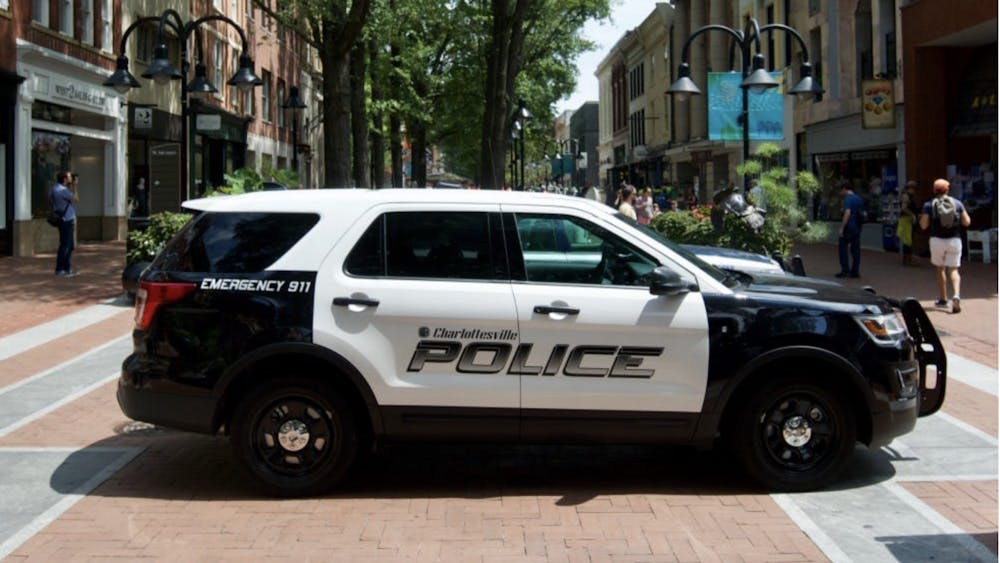One of the most notable legacies of the violent white supremacist marches on Aug. 11 and 12, 2017 is the distrust that it furthered between Charlottesville residents and the Charlottesville Police Department, that was already present due to a history of racialized policing. Not only were the police criticized for their undemanding handling of the violent demonstrations, but their failures have also been the basis for later protests. This distrust has even affected policing in Charlottesville — since last year CPD has seen a “mass exodus” with many officers leaving the department because of the aftermath of Aug. 11 and 12 and low salaries, amongst other reasons.
In part due to the criticisms of CPD, Charlottesville City Council created the Police Civilian Review Board, which is an independent group that seeks to build trust between the community and the police department. The CRB was established in 2017 with much controversy, mostly surrounding the lack of transparency about the board’s appointment process and its failure to appoint a few local civil rights activists. The initial board was tasked with creating bylaws, which include the CRB’s mission statement and voting members. Finally, the Council responded late last month with a final draft of bylaws for the Police Civilian Review Board to help shift the current state of police in Charlottesville.
This Board will have seven voting members and one non-voting member, all who are residents of Charlottesville. This final draft was approved after being open to public comment during the Council meeting this Monday, Oct. 4. Nevertheless, the Board remains controversial due to its unclear appointment processes. In order to hold the board more accountable in both its appointment process and inner workings, the CRB should enlist more volunteers and community members to provide input about the CPD and the Board itself.
The final draft of the Board’s revised bylaws reveal more information about its seven members, all of whom will be appointed by the Council. Three of these members must, “be residents of public housing at … or come from historically-disadvantaged communities that have traditionally experienced disparate policing.” Another member must represent some form of social justice activist organization. Additionally, there will be one non-voting member with some form of law-enforcement experience.
The bylaws, however, provide no guidelines for the appointment process — it only notes that the appointment is the responsibility of the City. Interestingly, the bylaws give the CRB ability to solicit community input but do not require it in reviewing its policies or better understanding civilian concerns.
Six voting members, even though it is required that these members have an understanding of disparate policing, cannot provide enough input about the scope of police misconduct within the City. Often, reports of misconduct go unseen and uninvestigated, leading to this culture of distrust between communities and their police departments. Therefore, it is essential for residents of Charlottesville to have a way to express their concerns that is independent of the police department itself. Just as the bylaws themselves are open to public comment through a public forum, CRB meetings themselves should also host this type of forum. By instituting a public forum, Charlottesville residents will be able to know that their voice is being heard by a board that has the power to submit recommendations to both the Charlottesville City Council and the General Assembly.
The revised bylaws are a product of rallies against initial drafts, thus illustrating the impact that public opinion may have on the Board’s inner-workings. For example, the most recent rally, which occurred in late October, demanded that the CRB have permanent status.
Hopefully, the CRB can be an important mode for justice within the Charlottesville community. The violent white supremacist marches in 2017 are not the only reason that people may not trust the police within this community, but the Board attempts to address this through its inclusion of board members from areas that have historically faced disparate policing. Therefore, a permanent and well-established form of checks on the police department is the first step in making sure that Charlottesville residents are treated fairly and can begin to have more faith in law enforcement.
Victoria McKelvey is the Senior Associate Opinion Editor for The Cavalier Daily. She can be reached at v.mckelvey@cavalierdaily.com.







